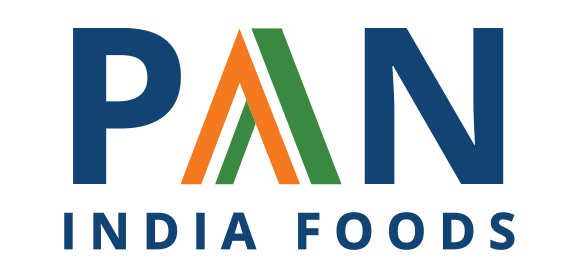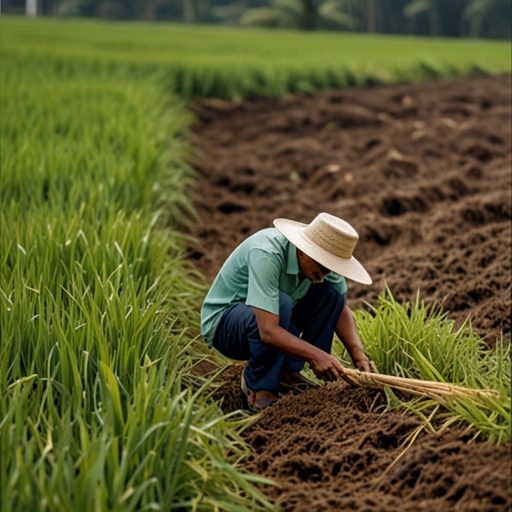The global rice industry is one of the most vital agricultural sectors, feeding billions of people worldwide. However, its environmental impact has raised concerns regarding water consumption, methane emissions, and soil degradation. As the demand for sustainable agriculture grows, companies like Pan India Foods are pioneering eco-friendly practices to ensure a greener future.
The Environmental Challenges of Rice Farming
Rice production contributes significantly to environmental challenges, including:
- High Water Usage – Traditional rice farming requires extensive water irrigation, depleting freshwater resources.
- Methane Emissions – Flooded rice fields produce methane, a potent greenhouse gas responsible for climate change.
- Soil Degradation – Continuous monocropping can reduce soil fertility and increase dependency on chemical fertilizers.
- Deforestation – Expansion of rice farming leads to deforestation, impacting biodiversity.
How Pan India Foods is Driving Sustainable Change
Pan India Foods, a leader in the rice industry, is committed to sustainable practices through innovative approaches that minimize environmental impact while maintaining high-quality rice production. Below are the key sustainability initiatives undertaken by Pan India Foods:
1. Water-Efficient Irrigation Practices
To address water scarcity, Pan India Foods employs:
- System of Rice Intensification (SRI) – A method that reduces water usage by up to 50% while increasing yield.
- Drip and Sprinkler Irrigation – These modern irrigation techniques optimize water distribution, reducing waste.
- Rainwater Harvesting – Collection and utilization of rainwater help sustain irrigation without over-reliance on groundwater.
2. Reducing Methane Emissions
Methane emissions from rice paddies are a major contributor to global warming. To combat this:
- Alternate Wetting and Drying (AWD) – A water management technique that reduces methane emissions by up to 50%.
- Use of Biochar – Biochar application improves soil health and lowers methane production.
- Low-Methane Rice Varieties – Pan India Foods promotes the cultivation of rice varieties that emit less methane.
3. Organic and Natural Farming Methods
Chemical fertilizers and pesticides degrade soil and water quality. Pan India Foods focuses on:
- Organic Fertilizers – Using compost, green manure, and biofertilizers to nourish the soil.
- Integrated Pest Management (IPM) – A sustainable approach that minimizes pesticide use through biological pest control.
- Crop Rotation and Diversification – Growing different crops between rice cycles enhances soil fertility and reduces pests.
4. Biodiversity Conservation and Sustainable Land Use
To prevent deforestation and protect biodiversity, Pan India Foods:
- Adopts Agroforestry – Planting trees alongside rice fields to promote biodiversity and carbon sequestration.
- Preserves Wetlands – Ensuring wetland ecosystems remain intact to support wildlife and natural water cycles.
- Promotes Eco-Friendly Packaging – Using biodegradable and recyclable packaging materials to reduce plastic waste.
5. Renewable Energy Integration
The company integrates renewable energy sources into its production facilities, including:
- Solar-Powered Mills – Solar energy reduces reliance on fossil fuels.
- Biogas Plants – Utilizing rice husks and waste to generate biogas for energy needs.
- Wind Energy Projects – Investing in wind turbines to support sustainable electricity consumption.
6. Sustainable Supply Chain Management
Pan India Foods ensures sustainability beyond production through:
- Fair Trade and Ethical Sourcing – Supporting farmers with fair pricing and sustainable practices.
- Waste Reduction Strategies – Implementing zero-waste policies in rice milling and packaging.
- Local and International Certifications – Acquiring sustainability certifications like Organic, Fair Trade, and ISO 14001 to meet global standards.
7. Community Engagement and Farmer Training
A crucial aspect of sustainable rice farming is empowering farmers with knowledge and resources. Pan India Foods:
- Conducts Training Programs – Educating farmers on sustainable agriculture and water conservation.
- Provides Financial Support – Offering micro-loans and incentives for farmers adopting eco-friendly practices.
- Encourages Women in Agriculture – Promoting gender-inclusive farming practices for community development.
The Future of Sustainable Rice Farming
As climate change and resource depletion threaten food security, sustainable rice farming will be the key to a resilient future. Pan India Foods continues to innovate by:
- Developing Climate-Resilient Rice Varieties – Breeding rice strains that withstand drought and floods.
- Expanding Digital Agriculture – Using AI and IoT for precision farming and resource optimization.
- Strengthening Global Partnerships – Collaborating with NGOs, researchers, and governments to drive sustainability.
Conclusion
Pan India Foods stands at the forefront of sustainable rice production, proving that eco-friendly practices can coexist with high-quality agricultural output. By adopting innovative irrigation techniques, reducing emissions, supporting organic farming, and promoting renewable energy, the company is setting new benchmarks for sustainability in the rice industry. With continued commitment and advancements, Pan India Foods is paving the way for a greener, more sustainable future in global rice production.

